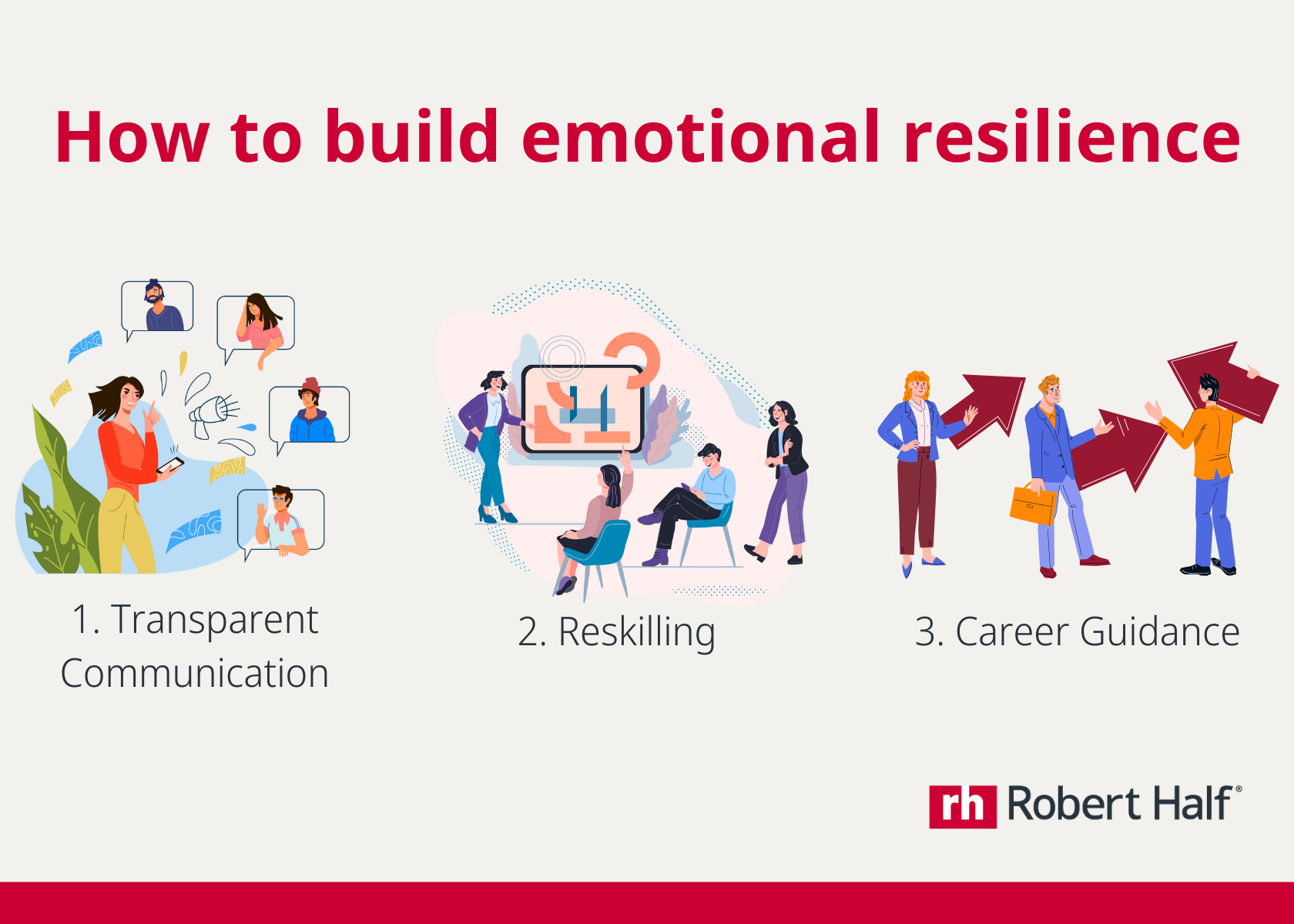3. Career guidance
Few things drain emotional resilience faster than feeling stuck in a job with no clear future.
Employees who lack direction often disengage, feeling like they’re just “going through the motions” rather than building something meaningful.
The importance of emotional resilience is evident in career guidance. If every employee had a clear roadmap, one that helped them see their growth potential, their next career step, and how to get there, then they would have something to work towards other than next week’s pay check.
Megan says, “when people understand where they’re headed and how to get there, it unlocks motivation and loyalty. Career clarity isn’t just good for the individual, it’s essential for long-term business success. If employees can see a future with your organisation, they’re more likely to stay engaged, take ownership of their development, and contribute at a higher level. But without that visibility, even your top performers may start looking elsewhere.”
That sense of purpose and direction is a core pillar of emotional resilience. “If employees can see that their hard work will pay off, they will be far more willing to go the extra mile and persevere,” says Ronil. “But that only happens when leaders are transparent about what’s ahead and intentional about keeping people connected to the bigger picture. Purpose-driven teams are more resilient, more focused, and more invested, especially when the road gets tough.”
What can employers do?
Start by having regular career conversations. Take the time to ask employees where they see themselves in the future and what support they need to get there. Then work together to create a realistic plan that aligns their goals with the needs of the business.
Create internal mobility programs. People shouldn’t have to leave the company to advance their careers. Create pathways for employees to move between roles, explore new teams, or take on stretch assignments that help them grow.
Pair employees with mentors. Guidance from someone who has faced similar challenges can be invaluable, both for building confidence and developing resilience. Mentoring helps people see what’s possible and reminds them they’re not navigating their careers alone.
When employees see a future within their company, they’re far more likely to stay engaged, motivated, and emotionally resilient, even when challenges arise. As Ronil points out, “career development acts both as a retention tool and a resilience strategy. People stay strong when they can see a future worth striving for.”
Frequently Asked Questions (FAQs)
Why is emotional resilience crucial for employees in New Zealand businesses?
Emotional resilience is essential for employees in New Zealand due to the increasing pace of change, economic uncertainty, and rising workplace pressures. Kiwi workers are dealing with constant change, and without emotional resilience, it’s easy to become disengaged or burnt out. As the article notes, "with stress, burnout, and job insecurity on the rise, emotional resilience isn’t a luxury, it’s a necessity." Building resilience enables employees to stay adaptable, maintain motivation, and contribute positively, even when challenges arise.
How does emotional resilience impact job performance and productivity in New Zealand organisations?
Emotional resilience helps employees stay focused, manage stress, and maintain consistent performance, even under pressure. It supports better decision-making, reduces burnout, and increases the ability to collaborate effectively with others.
It’s not just about weathering pressure in the moment, but about sustaining energy, focus, and effectiveness over time. In a fast-changing business environment, emotionally resilient teams are more likely to maintain high productivity and deliver results.
What are the key benefits of a resilient workforce for New Zealand employers?
A resilient workforce helps New Zealand employers navigate change, improve employee engagement, and reduce turnover. Teams that are emotionally resilient can adapt quickly to new challenges, support each other, and remain committed during tough times.
Businesses that invest in emotional resilience are supporting their people and building the conditions for sustainable success. From better morale to stronger long-term performance, resilience is a competitive advantage in today’s workplace.
How can businesses in New Zealand foster and build emotional resilience in their employees?
To build emotional resilience in employees, New Zealand businesses should focus on three key strategies:
Transparent communication: Open, honest dialogue helps reduce uncertainty and builds trust. As Megan Alexander, Managing Director at Robert Half New Zealand, says,
“leaders don’t need to have all the answers, but they do need to show up.”
Reskilling and upskilling: Regular training boosts confidence and helps employees feel prepared for the future. When reskilling becomes a normal part of career development, employees are more likely to stay motivated and engaged.
Career development support: Clear growth paths keep employees focused, loyal, and motivated to persevere. As Ronil Singh, Director at Robert Half New Zealand, explains, “career development acts both as a retention tool and a resilience strategy.”
How can Robert Half help New Zealand businesses identify and recruit emotionally resilient talent?
Robert Half New Zealand specialises in identifying candidates who not only meet technical requirements but also demonstrate emotional intelligence, adaptability, and resilience. With deep market insight and a consultative approach, Robert Half supports businesses in building high-performing teams.

